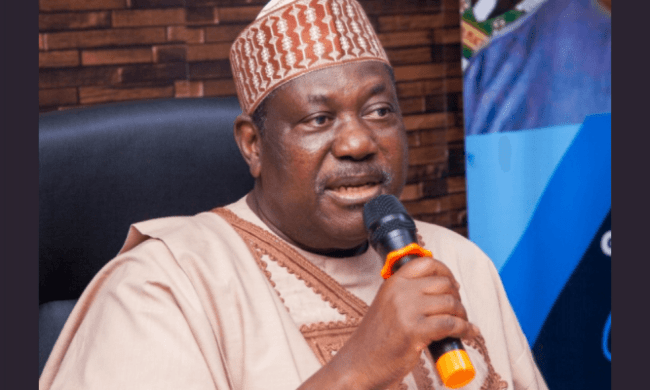The Secretary to the Government of the Federation (SGF), Senator George Akume, has highlighted the North Central region as the future hub of Nigeria’s non-oil export growth, citing its vast agricultural and mineral resources as major assets for economic diversification.
Akume stated this in Jos, Plateau State, while commissioning the Senator George Akume 250-Seater Conference Centre at the North Central Zonal Office of the Nigerian Shippers’ Council (NSC).
According to a statement by his spokesman, Yomi Odunuga, the SGF said the region’s rich mineral deposits and agricultural strength give it a strategic edge in driving national economic growth beyond oil.
“With improved logistics infrastructure, this region can become a key driver of Nigeria’s diversification agenda,” Akume said.
Speaking as Special Guest of Honour, the SGF commended the Nigerian Shippers’ Council and the Ministry of Marine and Blue Economy for their “commitment and vision” in enhancing Nigeria’s logistics and maritime framework.
“This edifice is not just a building; it is a statement of vision, a testament to commitment, and a reflection of the renewed energy driving Nigeria’s port and logistics system under the leadership of President Bola Ahmed Tinubu,” he stated.
Akume noted that sustainable economic progress across the world is anchored on robust infrastructure such as ports, roads, railways, and dry ports, which he described as “the arteries through which the lifeblood of commerce flows.”
He reiterated that under President Tinubu’s Renewed Hope Agenda, the Federal Government is prioritising investment in critical transport and trade infrastructure to enhance connectivity and competitiveness across the country.
“We are building an economy that thrives on connectivity, an economy where a farmer in Benue can ship produce seamlessly to Lagos Port, and an exporter in Jos can access global markets without unnecessary bottlenecks,” Akume added.
The SGF lauded the Shippers’ Council, led by its Executive Secretary, Barrister Pius Akuta, for its effective role as the Port Economic Regulator, promoting fairness, efficiency, and innovation in the maritime sector.
He also praised the Council’s efforts in bridging the gap between seaports and inland regions through the development of Inland Dry Ports and zonal coordination offices.
According to Akume, the newly inaugurated conference centre will serve as a hub for stakeholder engagement, policy dialogue, and capacity building to further strengthen Nigeria’s maritime and logistics ecosystem.
He called for stronger collaboration between the government, private sector, development partners, and host communities to sustain the benefits of ongoing infrastructure development.
“Government cannot achieve this vision alone,” he stressed. “Let us view infrastructure not merely as government projects but as national assets that require protection, maintenance, and innovation.”















